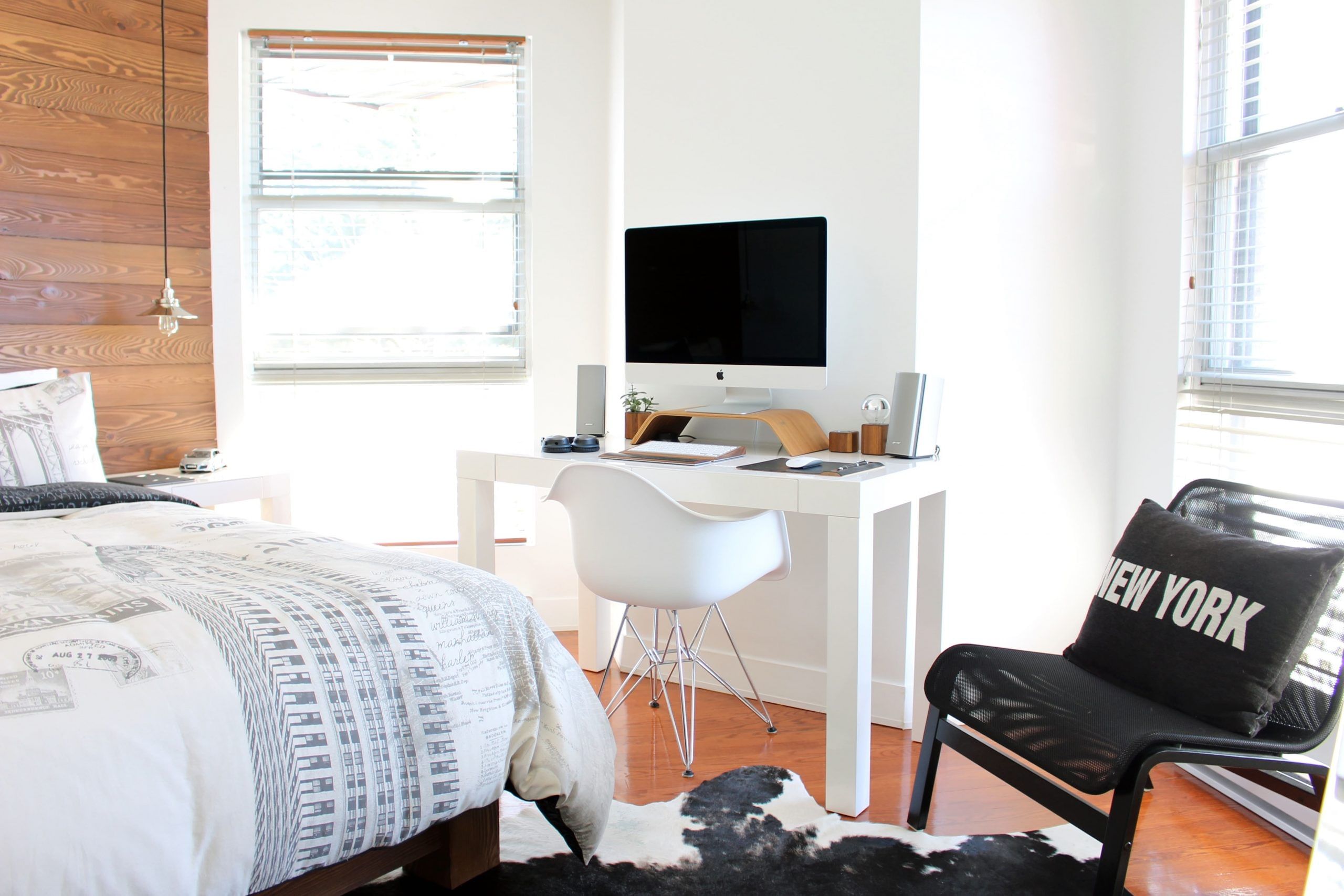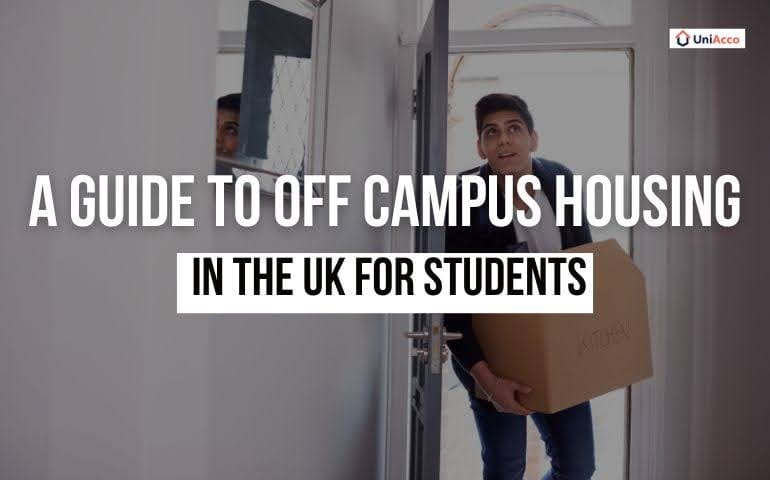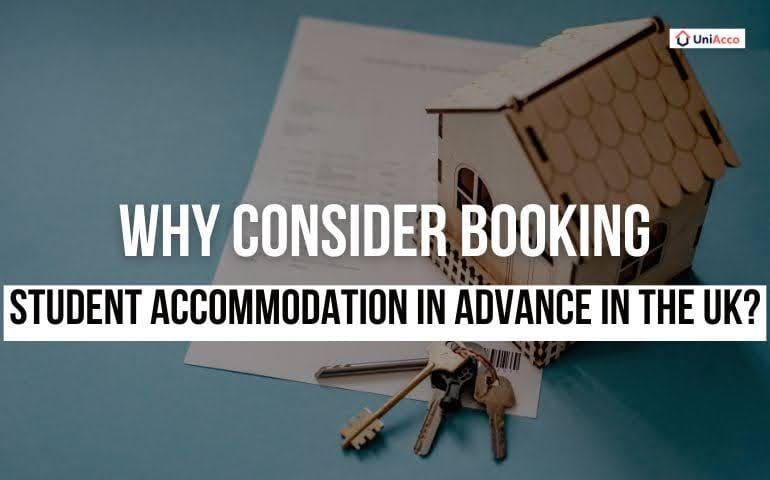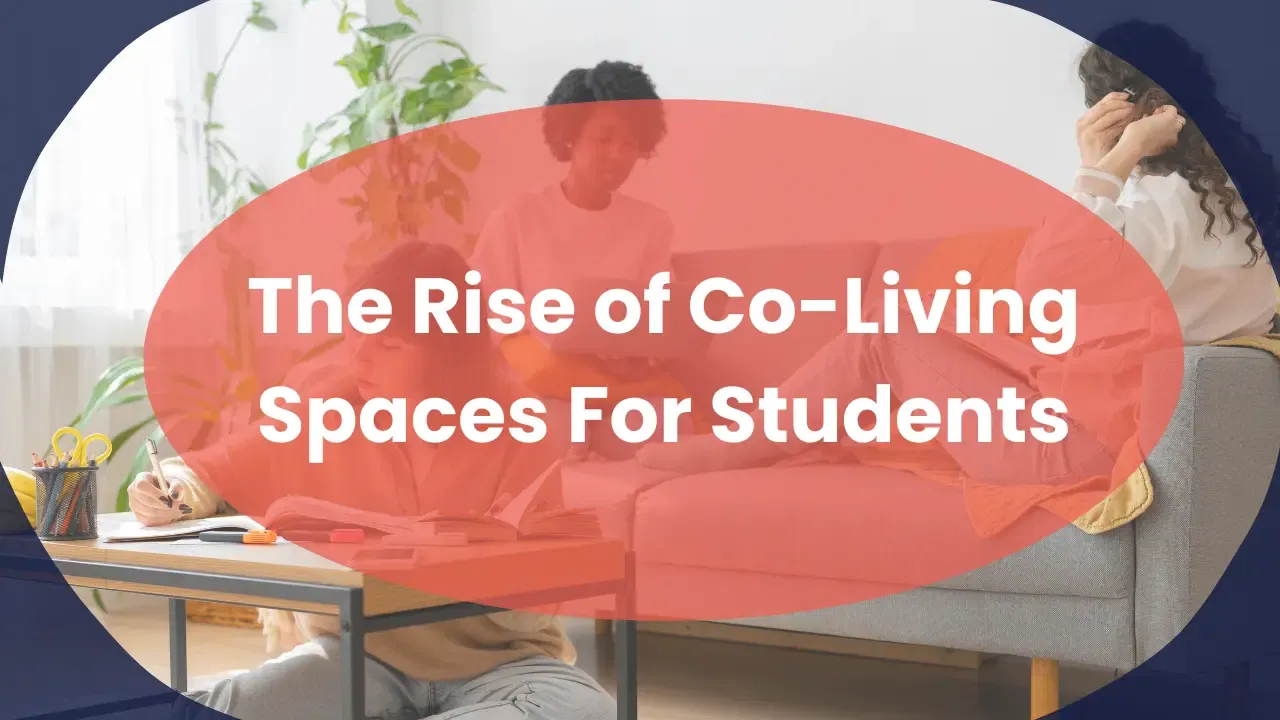The idea of finally sitting and jotting down your student accommodation abroad is an exciting task, but sometimes it can be daunting for overseas students to look for the right stay. Early planning, setting a realistic budget, and using reliable platforms are essential to making the search smoother and less stressful. In fact, studies show that nearly 60% of international students consider securing suitable accommodation a top priority before arriving, underscoring the crucial importance of this step in achieving a successful study experience.
This blog offers practical tips to help you find the right student accommodation, including important safety checks and useful resources.
Why wait? Explore safe, verified, and fully furnished student housing across top university cities with UniAcco.
🏡 Find Your Student RoomTop 13 Tips For Finding Your Right Accommodation

Start Your Accommodation Search Early
With a rising number of international students globally, demand for student housing abroad has increased significantly. Research shows that in key university cities, up to 75% of popular student residences are fully booked several months before the term begins. This trend makes early action essential to secure quality accommodation within your budget.
Why Book Early:
- Student accommodation fills quickly, especially in popular cities with high demand.
- Early booking provides a wider range of options, including more affordable and preferred locations.
- You can plan your move-in date around visa processing and university start dates.
- Booking early gives time to ask questions, check reviews, and verify listings without pressure.
- It reduces last-minute stress and the risk of having to settle for unsuitable or expensive housing.
Explore Different Types of Student Housing

When searching for student accommodation abroad, it’s important to understand the different types of housing available. Each option offers a unique living experience, with its own benefits and drawbacks depending on your budget, lifestyle, and how much independence you want.
On-Campus Housing
On-campus housing refers to accommodation managed directly by the university, often in the form of halls or dormitories. They usually provide fully furnished rooms, communal kitchens, and shared bathrooms, though some may offer en-suite options. A major feature is their location, typically within walking distance of lectures, libraries, and campus services, making them highly convenient for first-year students.
- Convenient location near campus
- Built-in social community
- Inclusive of bills and utilities
- Good for meeting other students
- Can be more expensive than some private options
- Less privacy and personal space
- Often strict rules and curfews
- Limited availability, especially for returning students
Private Student Halls
Private student halls are purpose-built residences run by companies that specialise in student living. They often feature modern amenities such as gyms, study lounges, cinema rooms, and laundry facilities. Rooms may come as en-suites or studios, while bills and Wi-Fi are generally included in the rent. These halls are ideal for overseas students looking for accommodation with added comfort and a strong social element.
- Modern facilities and security
- Flexible contracts
- Often includes bills and Wi-Fi
- Social events organised
- Costs can be higher than shared flats
- Less chance to personalise your space
- Can be noisy due to many residents
- Location may vary in convenience
Explore verified PBSAs in the UK on UniAcco with transparent pricing and inclusive amenities. Start your search for comfortable, hassle-free housing with us today.
Homestays
Homestays involve renting a room within a local family’s home, offering a more personal and cultural living experience. Meals are often included, and some families provide extra support, which can be helpful for students arriving in a new country. Staying with a host family also creates opportunities to practise language skills and learn about local traditions.
- Cultural immersion and language practice
- Often includes meals
- Usually stable environment
- Good for first-time international students
- Less independence and privacy
- Rules set by host family
- Location might be further from campus
- Limited social life with other students
Shared Apartments
Shared apartments allow students to rent a place with others, usually with private bedrooms but shared living spaces such as kitchens and bathrooms. It’s one of the more affordable options and popular among those who prefer independence but still enjoy socialising at home. Features typically depend on the property, but students gain more freedom to set house rules and manage their lifestyle.
- More privacy than halls
- Usually more affordable
- Freedom to cook and personalise
- More choice of locations
- Bills and utilities often paid separately
- Potential for conflict with flatmates
- Need to manage household chores
- Not always close to campus
Studio Flats
Studio flats are self-contained spaces with everything in one open-plan room, including a bed, kitchenette, and study area, with a private bathroom. They are perfect for students who value privacy and independence over social living. Studios often attract mature or postgraduate students who prefer a quieter environment, though they are one of the more expensive housing choices.
- Complete independence
- Privacy and quiet environment
- Control over your own space
- Good for mature or postgraduate students
- Usually more expensive
- Limited social interaction
- Higher utility costs as you’re alone
- May be further from campus or city centre
Also read: What Are The Popular Types Of Student Accommodation?
Browse through studios, shared apartments, private halls, and more — all verified by UniAcco for international students.
🔎 Compare Student Housing TypesComparing Key Features of Types Of Student Accommodations
| Feature / Type | On-Campus Housing | Private Student Halls | Homestays | Shared Apartments | Studio Flats |
|---|---|---|---|---|---|
| Location | On or near campus | Near campus or city center | Varied, can be far | Varied, often off-campus | Varied, city or campus |
| Privacy | Low to medium | Medium | Low | Medium | High |
| Social Environment | High | High | Low | Medium | Low |
| Included Bills | Usually all-inclusive | Usually all-inclusive | Sometimes (meals) | Usually excluded | Excluded |
| Lease Flexibility | Academic year leases | Flexible | Typically flexible | Generally flexible | Flexible |
| Cost Range (monthly) | Moderate ($600-$1200) | Higher ($1000-$1800) | Variable, usually low | Lower to moderate | Highest ($1200-$1800) |
| Best For | First years, social needs | Students wanting amenities | Cultural immersion | Budget-conscious | Privacy seekers |
Budget Smart and Account For Hidden Living Costs
For overseas students looking for accommodation, setting a realistic budget is the first step to a stress-free living experience. Rent will usually be the biggest expense, but it’s essential to factor in the cost of bills, groceries, transportation, and day-to-day essentials. Utility costs such as heating, water, and internet are sometimes included in rent, but not always.
Deposits, advance rent payments, and agency fees can come as unexpected expenses if you’re not prepared. A good approach is to break your budget down into categories – rent, bills, transport, and food- and track these monthly using simple budgeting apps or spreadsheets. This helps avoid overspending and ensures enough is set aside for academic and social needs.
Choose the Right Location
Picking the right neighbourhood can shape your entire student experience. According to a recent Knight Frank/ UCAS survey, 65% of first-time university applicants said accommodation availability played a key role in their choice of university.
Living near campus saves time and transport costs, but central hotspots often come with a premium price tag. Many students find a sweet spot a little further out, on quieter streets with safer surroundings, and more affordable rents, without losing the vibe and connectivity that make student life exciting.
Prioritise Safety and Verify Your Accommodation
Safety is non-negotiable when choosing student accommodation abroad. Start by researching neighbourhoods, checking local crime rates, street lighting, and how easily accessible safe transport is. Never send money before confirming the property exists. Make the most of video tours, official photos, or in-person visits whenever possible.
References or reviews about the landlord or agency can reveal who’s trustworthy. A responsible provider will be transparent about contracts, ready to answer questions, and committed to giving you a secure, worry-free home while you make the most of your time studying abroad.
Understand Rental Agreements and Contracts
Rental contracts abroad can be full of hidden surprises, so reading them carefully is indispensable. Make sure the rent amount, payment schedule, security deposit, and lease length are crystal clear. Pay close attention to cancellation rules, maintenance responsibilities, and early termination clauses.
For international students, check that the lease aligns with your visa or academic year to avoid unexpected penalties. If anything feels unclear, pause and ask questions and never rush into signing. A little diligence now saves headaches later.
Prepare Essential Documents For Renting In Advance
Most landlords and housing providers will ask international students to provide certain documents before confirming a tenancy. A simple checklist includes:
- Passport copy
- Student visa
- University acceptance letter or student ID
- Guarantor details (local or international, depending on rules)
- Proof of funds or bank statements
- Reference from a previous landlord (sometimes required)
Having these ready in advance speeds up the process and improves your chances of securing accommodation quickly.
Use Trusted Platforms and University Resources
Picking a place to call home when studying abroad isn’t a probability game. Begin with reliable platforms like UniAcco, university housing offices, or verified local portals. These sources showcase vetted properties with clear descriptions, transparent pricing, and details on what’s included, cutting down the risk of scams. Using trusted channels gives you confidence, peace of mind, and more time to focus on settling into your new city.
Network with Other International Students
A recent European survey found that nearly 70% of exchange students relied on recommendations from fellow students to find safe, suitable housing. So, your peers abroad can be your allies when zeroing in on student accommodation. Platforms like university forums, student union pages, and Facebook groups connect you with potential flatmates, sublets, or vacated rooms before they hit the mainstream market.
These insider insights come from real experiences, helping you avoid scams and spot the best accommodation options. Tapping into these communities not only enables you to find accommodation faster but also builds connections that make settling into a new country smoother and more enjoyable.
Stay Flexible with Housing Options
Flexibility can make or break your accommodation hunt abroad. First-choice flats or halls often disappear quickly, and a recent survey shows nearly 90% of students who couldn’t secure permanent housing initially had to rely on temporary options. Short-term lets, co-living spaces, or university residences can be lifesavers while you continue your search.
Keeping your options open eases the stress of last-minute decisions while also giving you the breathing room to find a place that fits your lifestyle, budget, and comfort.
Also read: Know About Short Term Student Housing Abroad
Spot and Avoid Rental Scams
Unfortunately, student housing scams are a real concern, and international students often face the highest risk. Research shows that over 30% of overseas students have encountered or heard of rental fraud while hunting for a place to stay.
Be alert to red flags like landlords asking for large upfront payments, deals that seem “too good to be true,” or pressure to bypass official agreements. Common rental scams include fake listings for non-existent properties, hijacked ads where scammers pose as landlords of real listings, and requests for payment before property viewing or contract signing. Always insist on seeing the property, even a virtual tour helps. Furthermore, use secure and traceable payment methods because protecting your money is just as important as securing the perfect student home.
Consider Lifestyle and Comfort Needs
Your living space shapes your daily routine, study habits, and overall wellbeing. When choosing student accommodation abroad, consider practical amenities like fast Wi-Fi, laundry facilities, and dedicated study areas. Extras, such as gyms, communal lounges, or social events, can also enhance your experience.
Consider your personal lifestyle before making a final choice. If you thrive in quiet environments, a private studio might be the best fit for you. If you enjoy community and networking, halls of residence or shared flats offer a lively, social environment. Striking the right balance between comfort, convenience, and your study needs ensures your accommodation supports both academic success and a fulfilling student life.
Seek Guidance from Advisors or Student Services
University housing officers and international student advisors know the city inside out, from the safest neighbourhoods to trustworthy landlords. They can even tip you off about hidden gems and off-market rooms that Google won’t show. They serve as a bridge between academic life and practical living for overseas students looking for accommodation. Reach out early, ask questions, and get expert guidance so you can focus on enjoying your study abroad journey.
Wrapping Up!
Your student accommodation abroad is where your new life begins. A safe, well-chosen space gives you the freedom to focus on studies, friendships, and experiences. Do your homework, ask questions, and don’t rush the decision. A little planning upfront can save a lot of stress later, making your move smoother and your student life more enjoyable.
Start your search on UniAcco to find secure, well-reviewed student accommodation abroad that supports a confident transition to student life.
Join thousands of international students who found their perfect home with UniAcco. Safe, affordable, and verified properties just a click away.
🚀 Book Your Room Now














0 Comments